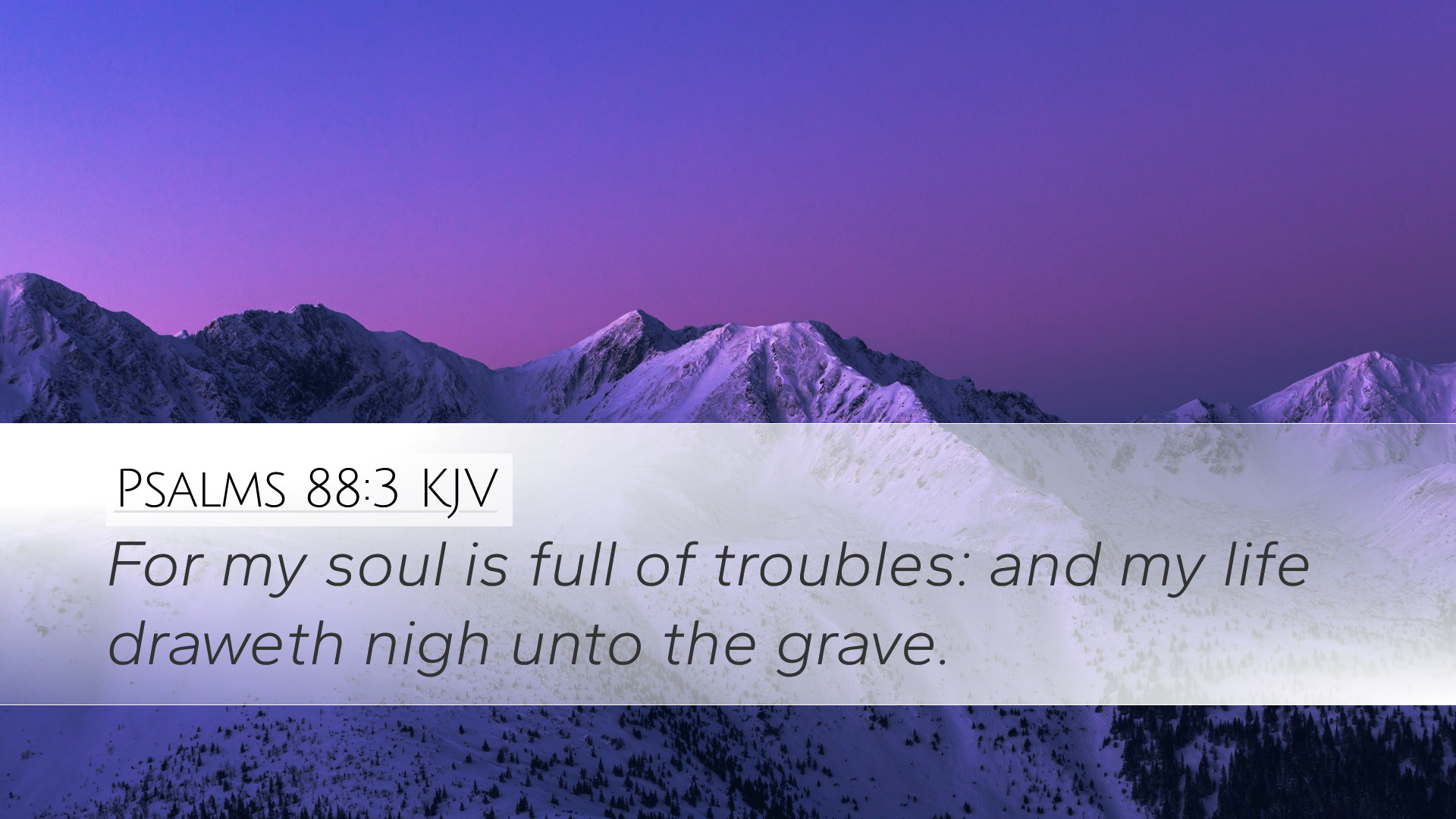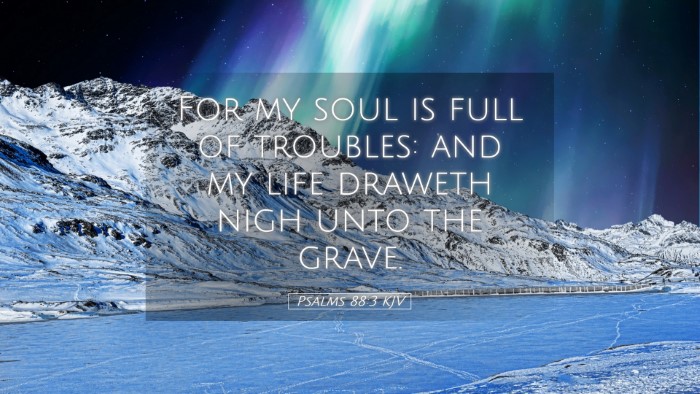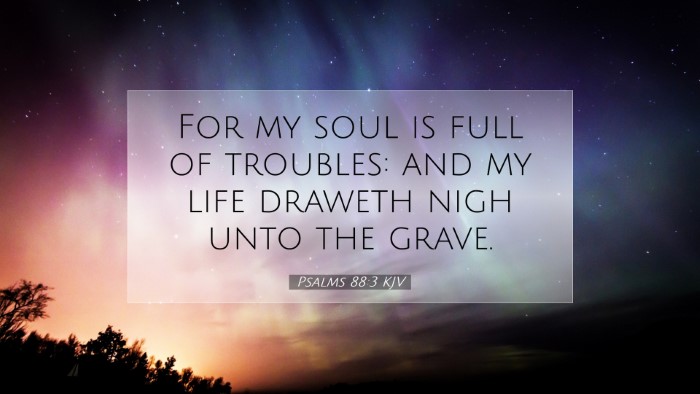Commentary on Psalm 88:3
Verse Reference: Psalm 88:3 - "For my soul is full of troubles: and my life draweth nigh unto the grave."
Introduction
Psalm 88 is often referred to as one of the bleakest psalms in the Book of Psalms. This lament expresses deep anguish and an overwhelming sense of despair. In this commentary, we draw insights from renowned public domain commentaries to explore the theological, emotional, and practical implications of Psalm 88:3.
Contextual Background
The psalm is attributed to Heman the Ezrahite, noted for his wisdom and for being a musician in the service of the temple. The tone of the psalm reflects the intense personal suffering that Heman experienced. This context is vital for understanding the depth of emotion contained in this specific verse.
Literary Structure
The psalm is structured as a prayer, moving from a genuine appeal for help to a deepened sense of hopelessness. Heman recounts specific troubles and expresses feelings of being on the verge of death. The use of imagery related to the grave emphasizes the severity of his situation.
Verse Analysis
Psalm 88:3 states, "For my soul is full of troubles: and my life draweth nigh unto the grave."
-
“For my soul is full of troubles”:
This phrase illustrates the profound distress that Heman experiences. Albert Barnes remarks that troubles refer to both physical and spiritual afflictions, indicating a holistic despair that saturates the individual’s existence.
-
“and my life draweth nigh unto the grave”:
This expression conveys the imminent threat of death. Adam Clarke points to the grave as a metaphorical representation of the lowest point of human experience, symbolizing hopelessness and despair, while also referencing the physical reality of mortality.
Theological Implications
Psalm 88:3 serves as a reminder of the reality of suffering in the believer's life. Understanding this verse invites a reflective examination of the nature of God in the midst of pain and despair.
-
God’s Presence in Suffering:
Matthew Henry underscores that even in the deepest despair, God’s presence is not absent. Heman's cry for help acknowledges God’s sovereignty, despite the overwhelming nature of his troubles.
-
The Nature of Lament:
The psalm exemplifies the biblical theme of lament, indicating that expressing grief and sorrow to God is an essential aspect of faith. Adam Clarke emphasizes that such candid expressions are not indicative of a lack of faith, but rather an invitation for God to intervene.
Pastoral Applications
For pastors and ministry leaders, there are vital lessons to glean from Psalm 88:3:
-
Encouraging Honest Expression:
Creating a safe space for individuals to express their feelings of pain and anguish allows for healing. This passage demonstrates that it is okay to bring our full humanity before God.
-
Validating Experiences of Suffering:
Recognizing that suffering is a shared experience among believers can help foster a supportive community. As Matthew Henry notes, acknowledging one’s profound troubles can lead to deeper reliance on God.
-
Promoting Hope amidst Despair:
Even as Heman articulates his sorrow, the psalm ultimately leads to a greater understanding of God’s faithfulness. Pastors can encourage their congregations to find hope, even when circumstances seem dire.
Conclusion
Psalm 88:3 is a profound articulation of despair that resonates with many believers. It challenges us to confront our own troubles while assuring us that we are not alone in our pain. Through insights from various commentators, we see that approaching God with our honesty is both acceptable and necessary for spiritual growth.
This psalm is a powerful reminder of the tension within faith: God's silence in our darkest hours does not equate to His absence. Rather, as we bring our troubles before Him, we participate in a biblical precedent of true lament, leading us into deeper reliance on our Creator even in the depths of despair.


